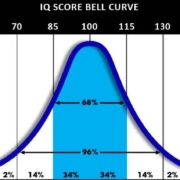Parents often ask me about getting their school districts to pay for private evaluations. Sometimes their districts ignore their requests for evaluations, don’t evaluate their children in all the areas they should, or just conduct inadequate evaluations. I’ve written about Independent Educational Evaluations (IEEs) in the past, but I think it’s time to get back to IEE basics.
There are three ways to get IEEs:
You can disagree with the District’s evaluation in writing and request an IEE at District expense;
A Hearing Officer can order it at a due process hearing;
Finally, you can always get your own Independent Evaluation, which must be considered by the Committee on Special Education (CSE), at your own expense.
We’re going to focus on the first option.
For clarity, an IEE is an evaluation of a student with a disability, or thought to have a disability, by a qualified examiner who is not employed by the School District. To conduct a proper evaluation, the District must assess the child in all areas related to the suspected disability, whether or not commonly linked to the disability category in which the child has been classified. The District must also use a variety of assessment tools and strategies to gather relevant functional, developmental, and academic information to be able to draft Individualized Education Programs (IEPs) to enable the child to make educational progress.
When an evaluation is conducted by the District and the parent disagrees with it in writing, the District only has two options. It can either work with the parent to obtain an independent evaluation, OR it can take the parent to Due Process and defend its evaluations. That’s it. They cannot delay the IEE or just not respond. Parents may also be entitled to an IEE when the District does not evaluate the child when they should have done so.
Of course, each situation is unique. And some districts are more likely to fight parents than others. But comprehensive, quality evaluations are the foundation for effective special education. Before you can put together a quality IEP, you need to set goals. And before you set proper goals, you have to have a thorough understanding of the strengths and weaknesses of the child. And that only comes from good evaluations.
If you have more questions about IEEs, please contact me.







